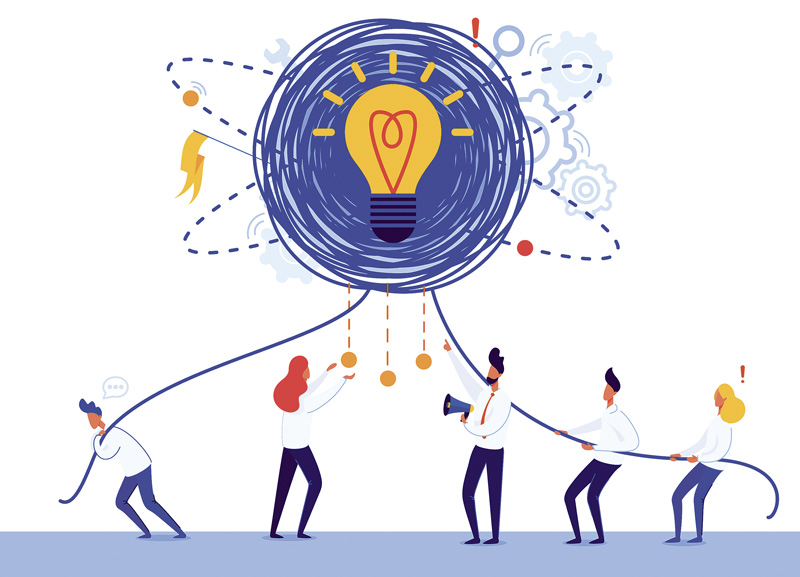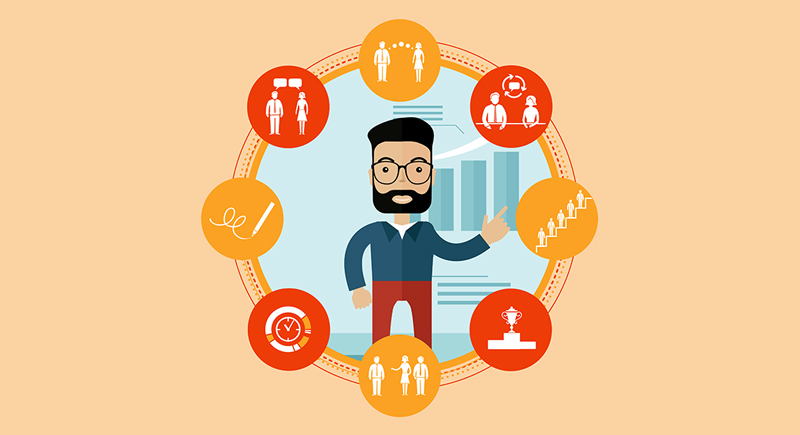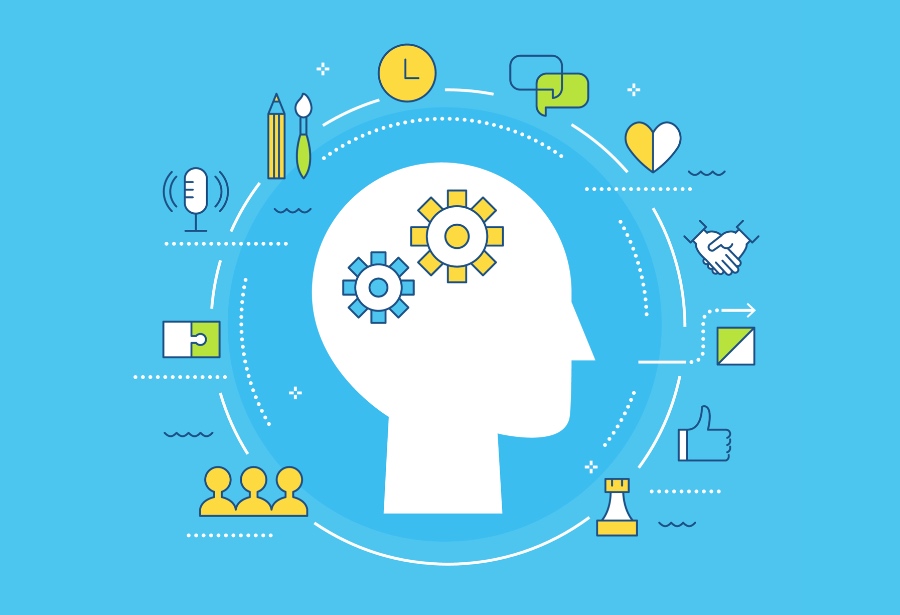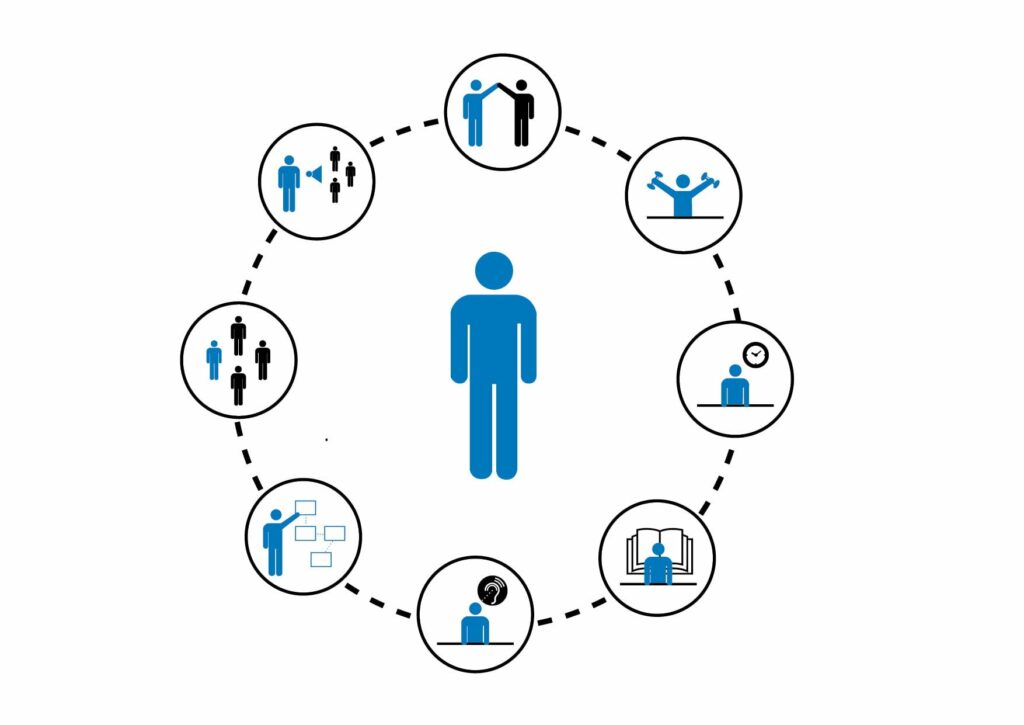Throughout your career, you have surely come across different types of personalities. Colleagues with more empathy than others, some more organized, another with greater leadership power, etc. All of these capabilities are considered soft skills, and they are a very important part of the workplace of companies.
Have you ever thought about whether you really give importance to these soft skills when setting up your equipment?
Here we leave you all the characteristics and how to improve soft skills in your company.

What does it mean and what are soft skills?
Also known as soft skills, soft skills are abilities and/or characteristics that each person has. These competencies, linked to the personality, they can reach to get well, and are highly valued by companies today.
They help determine how an employee, in the labor case, relates to other colleagues, and how he faces his work tasks.
Soft and hard skills. What is the difference between them?
Unlike soft skills, hard skills are those things that you have learned to do throughout your life. Skills that are easy to quantify, which are usually added to the resume: technological skills, mastery of programs, languages, titles, etc.
Soft skills, on the other hand, are interpersonal traits that develop and improve over time, such as empathy, patience, generosity, affective communications, etc.
“The ability to put yourself in another's shoes is one of the most important functions of intelligence. It shows the degree of maturity of the human being.”
– August Cury

Different types of soft skills.
They are divided into three groups.
- methodical skills: They are the skills most similar to hard skills, since they are not as quantifiable as soft skills. They are not so easy to demonstrate, since they are more focused on the professional field. Analytical ability, presentation techniques or organization would be methodical skills.
- Social skills: Skills that are developed in social settings. Empathy, the way of interacting or, for example, social integration, would be skills that define a person when working in a group.
- Interpersonal skills: Those skills that make you unique as a person. Many of the interpersonal skills can be confused with other categories of soft skills. A person, for example, with a certain curiosity and self-confidence, will be able to more easily convince others in a social interaction. At the same time, another person who is more motivated and committed, will be able to acquire methodical skills sooner.
The soft skills most demanded by companies.
- Flexibility and adaptability to change
- Conflict resolution
- Emotional Intelligence
- Empathy
- Communicative skills
- ethical responsibility
- Ability to manage time
- Stress management
According to a study published by Linkedin, on booming jobs, 57% of managers consulted consider soft skills more useful than hard skills.

Keys for managing the soft skills of a team.
- Meet your team. The first thing to do is assess what kind of soft skills our team has. It is done through different self-assessment tools such as tests, group dynamics, etc. From here you can start to carry out the process of managing the soft skills of our team.
- Measure soft skills. After the evaluation we must begin to measure. The results of the tests and their conclusions should be analyzed, in order to carry out a proper follow-up, and to know what level of soft skills the employees have, and see which ones could have more potential and which ones would need to be worked on more.
- The importance of feedback. Apart from the measurement, it is very important to know what the employees think. At the end of the day, they are the ones who know each other best, and knowing their feedback, we will be able to reach many more details that the evaluations would not provide us.
- Choose the most important soft skills. At this point, it's time to work on all of the above. Through tools such as gamification, we can work on all skills. It is important to know how to select which soft skills are the most useful for our business, to start training them.
- Gamification as a tool for soft skills. All the information we have obtained in the previous steps will help us create mechanisms with which we can improve our skills and those of our team. Both soft and hard skills can be worked on, and the Gamification, as we have said before, is a good tool for this.

Thanks to gamification, companies obtain greater and better communication with their workers, in addition to promoting corporate communication. In GumsUp, we are specialists in in loyalty platforms and commercial motivation systems. Thanks to gamification strategies, you will reinforce personal motivation and improve group dynamics.

